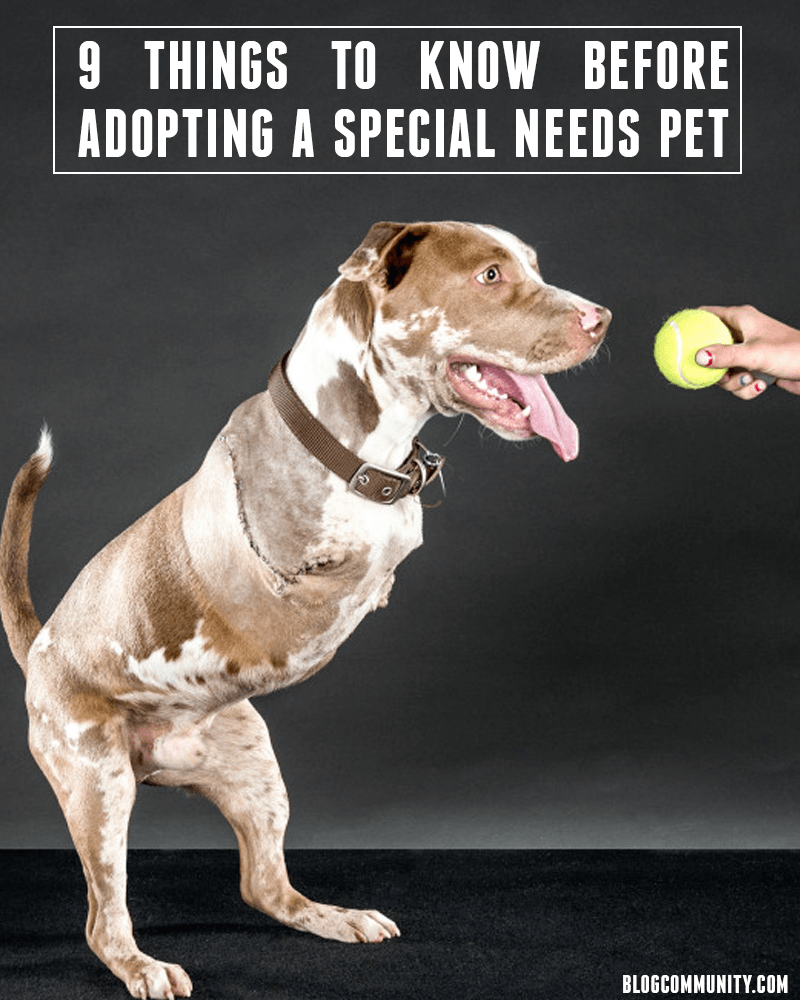Special Need Pets Are Special | 9 Things to Know Before Adopting a Special Needs Pet
Are you thinking of caring for special needs pet? Special needs pets include:
- Physical disability
- Chronic or terminal illness
- Recovering from a serious injury
- Elderly and/or requires hospice care at home
- Emotional and/or behavioral problems
Make sure you have enough time and energy to devote to caring for pets that require work. You need patience and attention to health care needs which isn’t for everyone. Blind and deaf pets require pet owners who can learn specific training; amputees can develop osteoarthritis and obesity, and may require nontraditional exercises, rehabilitation therapy and pets with chronic diseases need owners that are actual experts to the pets home care. It’s not easy which takes your time and commitment to care for special needs pets from hydrotherapy to acupuncture and wheelchairs.
Things You Should Know and Do Before Adopting Special Needs Pet:
1. Recognize that many special needs will last the life of the pet and it is important to anticipate long-term care and management. Research special needs pets specific issues to get up to speed on the disorder or disability and its special care.
2. Establish a relationship with your veterinarian to set up an ongoing care regimen that is appropriate for current and any future medical needs of your new companion.
3. As with any adoption, be sure your household is ready for the responsibility of the new family member, especially those with special needs.
4. If you are uncertain of your future or are a first time pet owner, senior pets can be great additions. While adopting a puppy or kitten can mean a commitment of 10-20 years, adopting a senior pet allows a shorter term commitment to help you get accustomed to pet ownership.
5. When adopting a special needs pet, what you see is what you get. These animals have already established their personalities, and you can be sure to find one that fits in your home.
6. Senior pets, dogs in particular, don’t need as much exercise as their younger, more energetic counterparts. If you have a busy schedule and can’t commit to potty training or regular exercise, a senior is a great fit. Consider how much energy you will need to dedicate and determine if you’re physically up to the task, some pets can be physically demanding.
7. As pets age, they may need increased medical care and your vet can help you find a regimen that works for you and your new companion. Examine your finances because no pet in inexpensive and special needs pets will require more resources than others or check other options like pet insurance.
8. Some amputated and even some older pets have decreased mobility. Depending on the pet, ramps or floor grips may be helpful in your home. To help manage arthritis, supplements could also prove beneficial.
9. Regular blood work is encouraged as it can help identify any potential medical issues before they are in advanced stages. Want to make a special needs pet part of your family? Look to your local shelter or specialty organization in your area.









